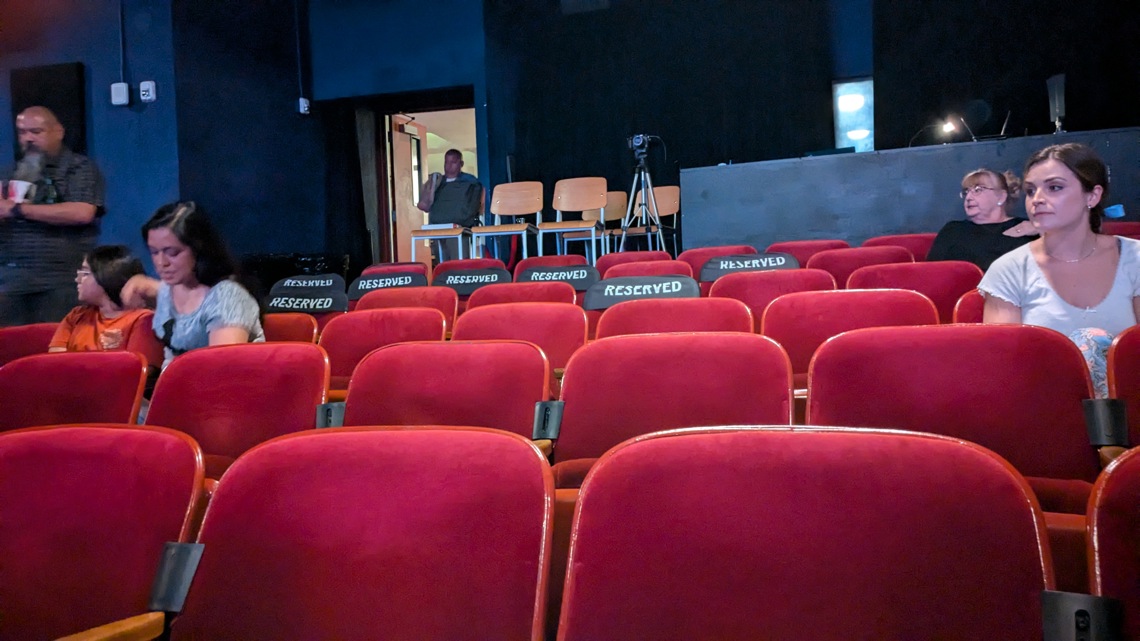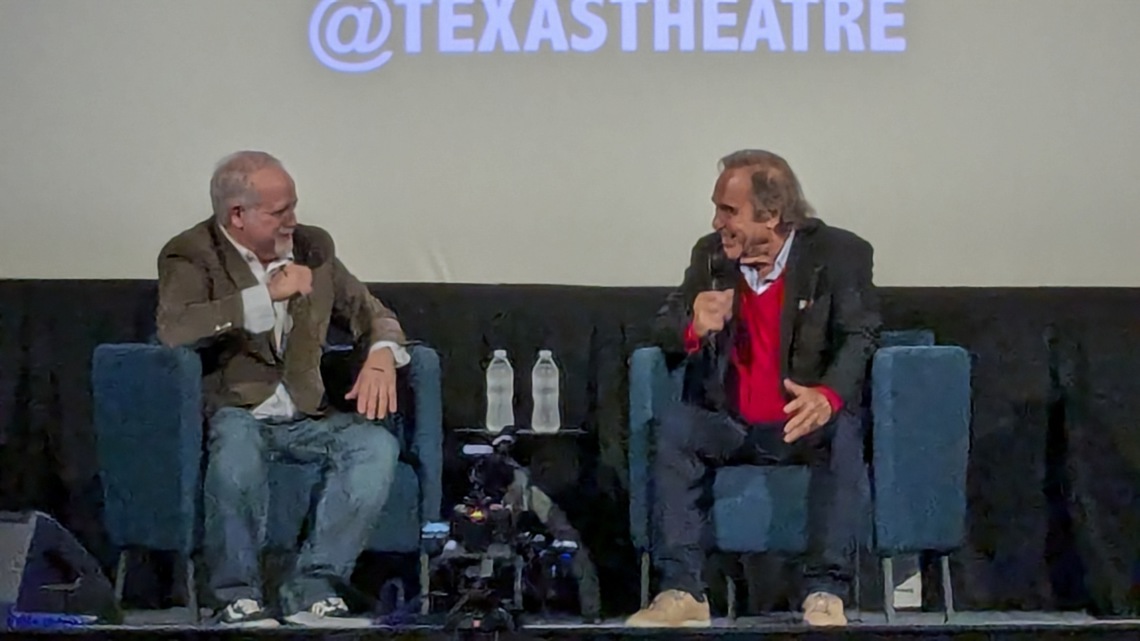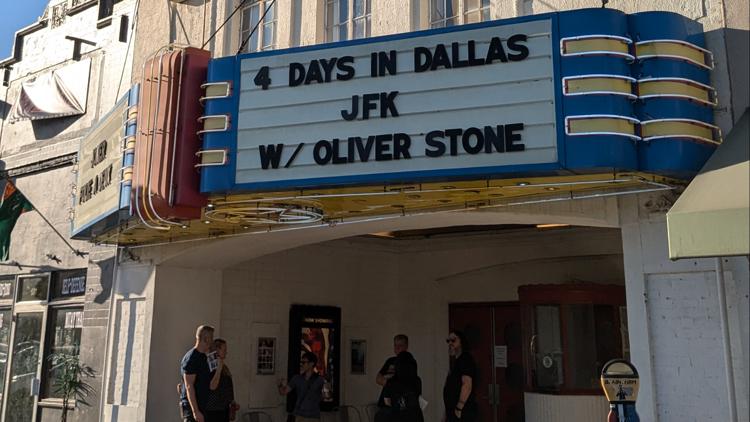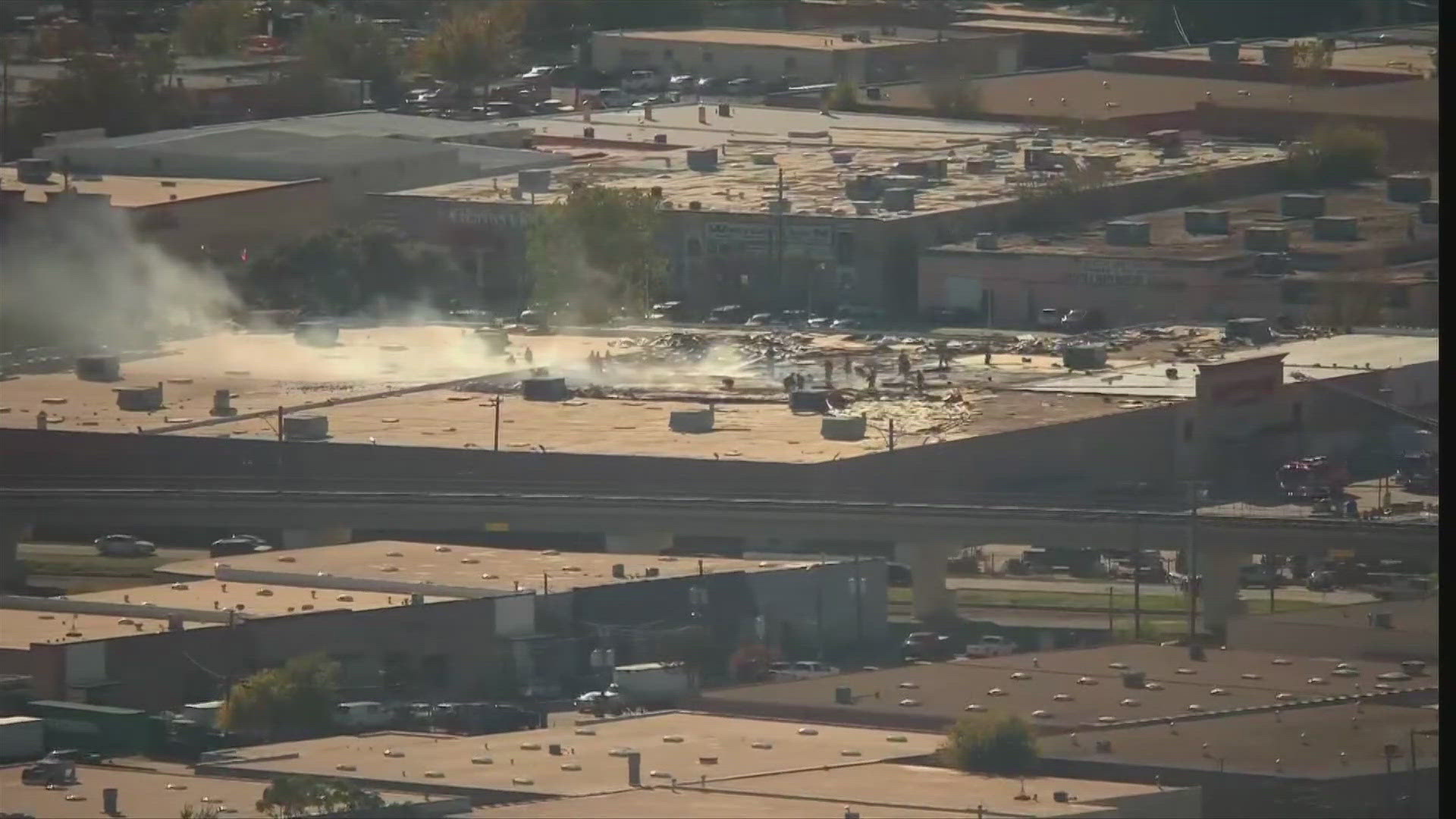DALLAS — It's been more than 60 years since the assassination of President John F. Kennedy in Dallas, and to this day people still can't stop talking about it.
Nowhere could this be better seen than on Friday night at the Texas Theatre, as moviegoers packed the historic theater where Lee Harvey Oswald was arrested after the assassination of the late president for a screening of "JFK" with the movie's director, Oliver Stone, in attendance.
It was a historic novelty hard to pass up to be able to watch the epic conspiracy-laden thriller in one of the locations most closely associated with Kennedy's killing. The crowd was well aware of it, as shots of the theatre in the movie drew loud applause.
Stone, himself, sat in the same area where Oswald was sitting when he was arrested.


Stone said in a Q&A following the movie that he had tried to put Kennedy's assassination out of his mind after it happened. He was 17 years old at the time of the shooting, and just a few years later would enlist in the army to take part in the Vietnam War, which would have an impact on the rest of his career.
It wasn't until Stone was shooting "Born on the Fourth of July" in Dallas that he read Jim Garrison's book on the assassination, which would later become the foundation for his film, "JFK."
"I really thought this is a great thriller," Stone said. "I hadn't done the research. I just believed what I was seeing was a great movie, was a potentially great movie."
The movie follows Garrison, then the District Attorney of Orleans Parish in Louisiana, in his attempt to charge and convict Clay Shaw in the conspiracy to kill Kennedy. The director's cut, which is nearly three-and-a-half hours long, follows Garrison as he uncovers a vast interconnected web of what he believes was a cover-up surrounding the assassination.
"JFK" is filled with cameos of famous actors like Joe Pesci, John Candy and Jack Lemmon, but perhaps the most memorable is by Donald Sutherland, who plays a mysterious ex-military official in the film and a key role in providing information to Garrison.
Sutherland, who died just a few months ago, received a huge round of applause for his scene during the screening at the Texas Theatre.
Although Shaw was found not guilty, Garrison firmly believed the CIA was behind the killing of Kennedy as a means of continuing the Cold War and the conflict in Vietnam. And although Stone said he thought Garrison had a weak case, he didn't think Garrison was wrong.
"I feel very strongly that Garrison was correct," Stone said after the movie. "He was on the right trail."


There are old adages that art can be a mirror, and that it can be a hammer, and Stone said he thinks "JFK" is both.
"I think it holds up a mirror to what we felt and what we continue to feel," he said. "But it's also a hammer. And that, as you have pointed out, it has had actual practical effects, actual applications, like actual things can happen as a result of this movie. That's amazing."
One year after "JFK" was released, in 1992, a law was passed by Congress directing the National Archives and Records Administration to the President John F. Kennedy Assassination Records Collection, disclosing and making public all records related to the events.
Since Kennedy, Stone said after the screening that he doesn't think the U.S. has had a good president.
"I think none of them have talked about peace," Stone said. "It's a militant culture now and presidents have to win at any cost."
Stone talked about the ballooning military budget of the U.S. since the Kennedy assassination and its connection with Wall Street, how companies are invested into it.
"It takes an election by the people of a man or a woman who is saying 'f*** you and do it,' you know, and that would be the hardest thing to do," Stone said. "It's not gonna come from Kamala Harris, that's for sure."
Two more Stone movies are being screened this weekend, "Talk Radio," at 5 p.m. this Saturday, and "Born on the Fourth of July," at 3 p.m. this Sunday.
For more information, click here.



